
views
Interacting with Someone You Hate

Maintain positive posture and body language. One way to send positive signals to someone you hate is to maintain positive posture and body language. Holding positive body language will send non-verbal signals to the other person that you actually don’t hate them. At the same time, if you’re not aware of your body language, you just might send negative signals to someone you hate. Smile, but don’t smile in a weird way. Stand up and be confident. Avoid crossing your arms or taking other defensive postures. Don’t violate their personal space.
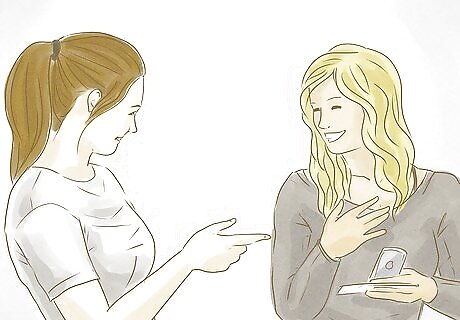
Focus on the positive. When interacting with someone you hate, always make sure to focus on the positive. The more positive you are, the nicer you’ll seem – even if you hate the person. In addition, your positive attitude might rub off on the person you hate, they might be more positive, and you might wind up liking them. Point out the positive things going in your life and among your mutual friends and acquaintances. For example, say "I think Sarah really deserved that promotion. She's a hard worker." Only say good things about other people. For example, say "John's new haircut looks nice, doesn't it?" Compliment the person on their achievements and congratulate them on good things going on in their life.
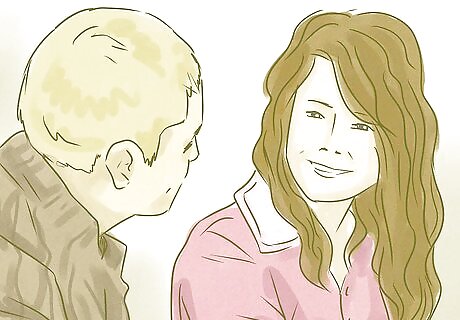
Avoid arguing with them. Sometimes we deal with people who are abrasive or argumentative. We don't want to interact with them, but we hate to let them go unchallenged. However, if your goal is to be nice to someone like this, you can’t fall into their trap. Avoid confrontations and arguments with them at all costs. Instead: Politely excuse yourself it they are doing or saying something that challenges you in a rude way. For example, say: "I have not seen Raul in a long time, please excuse me." Change the subject to a topic that will be harder for them to anger you about when talking. For example, say: "On a different note, what do you think about that White Sox winning the World Series?" Don’t talk touchy subjects, such as politics, religion, race and ethnicity, or anything that could potentially offend the person.
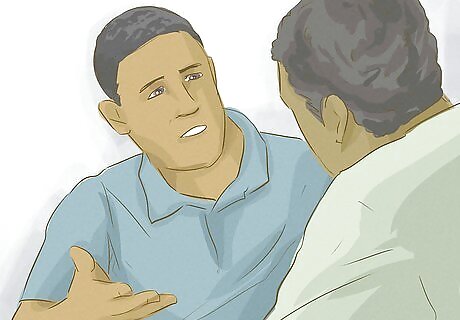
Avoid sweating the small things. Embracing a care-free attitude will help you deal with people you don’t like. The more relaxed and care-free you are, the easier it’ll be to let small annoyances and transgressions roll off your back. In addition, the person you’re dealing with might see your relaxed demeanor and loosen up themselves. Tell yourself that small things don't matter. Don't read too much into people's actions or words -- take them at face value. Don't let things like people flaking out or blowing you off bother you.

Communicate with them about your feelings. Perhaps one way to improve your relationship with the person you hate is to talk to them about your feelings, what they do to antagonize you, and what both of you can do to make your interactions more pleasant. If you successfully communicate, you might be able to foster a relationship that is healthier and in which both of you form a true friendship. Speak in terms of “I feel.” For example, say "I feel we could become better friends, John." Don’t make accusations. Ask them for their feedback about what they perceive your relationship to be. For example, say: "How do you feel about our friendship, do you think we could improve it?"
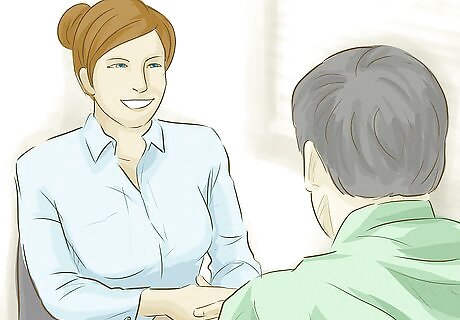
Do nice things for the person you hate. One way to be nice to someone you hate is to offer to do favors and other things for that person. Offering to do favors for the person will signal that you either like or care for the person instead of hating them. Ultimately, doing nice things for the person will not just give the impression that you like the person but it may help create a relationship in which both of you reciprocate and respect each other. If the person mentions they’re having a problem with something (and you can help), offer assistance. If you know the person in a work environment, offer to cover for them if they’re sick or for some reason have to miss work. Bring the person food or other small gifts when they’re going through a bad period in their life.
Controlling Yourself and Limiting Interactions
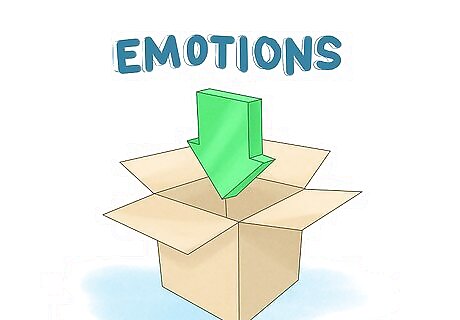
Control your emotions. When dealing with someone you absolutely hate, make sure to control your emotions at all cost. In the back of your mind, you might be thinking how much contempt you have, but there is no way to be nice if you let your feelings get the better of you. Stay calm, think about your goal of being nice, and let your brain rule the day. Think about your own behavior, rather than their behavior. Focus on your goal of being nice. Don’t let their comments or actions provoke you into rash behavior. Regardless of whatever they do or say, just stay cool. Reader Poll: We asked 269 wikiHow readers, and 53% of them admitted that they typically respond to negative emotions by lashing out at others. [Take Poll] Instead, try journaling or taking deep breaths to calm yourself.

Say less. One tactic to use when talking to someone you hate is to say less than you normally would under other circumstances. Saying less will help you in several ways. It’ll open you up to less opportunities when you may let your contempt or hatred slip from your lips. It will also minimize the amount of time you’re actually engaging the person. Be polite and kind, but keep your statements and responses relatively short and concise. Don’t be curt, but rather try to come off as quiet and thoughtful. If they question you about something, respond to them by telling them you’ll have to think about it, or you’ll get back to them later. This way, you’ll keep your response minimal and you’ll be able to think about your response.

Minimize interactions. Perhaps the best way to maintain cordial relations with someone you don’t like is to minimize interactions with the person. Minimizing interactions will limit occurrences in which you might be mean to the person. The less face-to-face time, the more likely you’ll be able to control yourself and the less the person will actually wear on you and antagonize you. Only interact when you have to. Think beforehand of reasons why you may have to excuse yourself. Don’t lie, but instead make obligations that you’ll have to attend to. Some examples might mean meeting up with family or friends elsewhere. Plan your schedule around them as to avoid them when possible.

Be deliberate. In every interaction with the person you hate, be deliberate about what you say and do. Being deliberate will help you to control your actions and will hopefully prevent the person from reading negativity into your interaction. Ultimately, the best way to be nice to someone you hate is to engage with them in a careful and deliberate manner. Say only what you are comfortable sharing with them. Think of what you will say to the person in advance. Don’t shoot from the hip and respond to their comments and actions without thought.
Changing Your Attitude About Someone
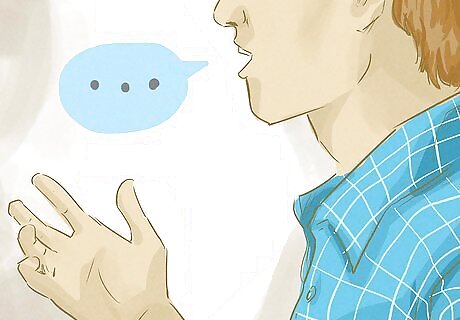
Decide to give the person a second chance. Instead of relying on first impressions of someone you think you hate, give the person a second chance. If you give the person a second chance, you might find out that despite a person’s rough edges, you actually like them. As a result, giving someone a second chance could transform many potentially unhappy and awkward interactions into positive interactions that you enjoy.

Learn about the person. Sometimes we make snap decisions about people based on our initial encounter with them and then quickly develop negative feelings towards them. In order to overcome this, try to learn more about the person you hate. You might just learn that you actually like the person, despite their rough edges. Ask them about their life and experiences. Engage them in long conversations. Talk to them about mutual interests, philosophy, current events, or more. Find out their likes and dislikes. Consider inviting them out to dinner or to have a cup of coffee. If you’re weary of one-on-one time, invite another friend or friends to help create some space between you two.

Develop empathy for the person. An important way to help you be nice to someone you hate is to try to develop empathy for that person. Empathy is defined as the ability to understand and even take on some of the feelings of another person. If you empathize with a person, you’ll be able to put yourself in their situation and you might even find yourself being nice to them without even trying. Ask yourself several questions when trying to empathize with the person you hate: Have they had hardships or other challenges that you should try to understand? Does the person come from a socio-economic or family background that is drastically different from your own? Do you know enough about the person to hate them or to judge them? If you don’t, try to gather more information.

Examine why you hate the person. One of the most important things you should do in order to be nice to someone you hate is to examine why you dislike the person. Ultimately, examining your feelings for someone will help you figure out just why you don’t like the person and may give you some insight into overcoming your dislike and being nicer to that person. Think about things the person says or does. Think about your own prejudices and biases. Think about the context in which you know the person. Context is very important, and might color the way you think of the person.

Focus on your goals. When dealing with someone you don’t like, you should always remember your goals. Most often, being mean or rude to someone will not further your goals in life – but being nice will. As a result, being goal-oriented will help you to overcome your negative feelings for a person and motivate you to be nice. Consider: If you work with someone you hate, you might need to be nice in order to collaborate on a project. In addition, if someone you hate is your boss, you’ll have to be nice in order to keep your job. If someone you hate is in your social circle, you may need to be nice in order to maintain your position in the group. That person might also be important to a mutual friend, and being mean to the person will just alienate your friend. Whenever coming into contact with someone you hate, always remind yourself of whatever goal you might have, and how being nice to the person will further your goals.

Consider that you may be the problem. While very often we hate people because of what they’ve said to us or have done to us, sometimes we form a hatred based on factors beyond the person’s control. In this case, you really need to consider your own actions and attitudes in order to figure out if you are actually the problem. You might find out that you’ve done something to offend the person which led them to antagonize you. Ultimately, accepting that you initiated the problem or are the cause of the problem will empower you to move beyond hatred.











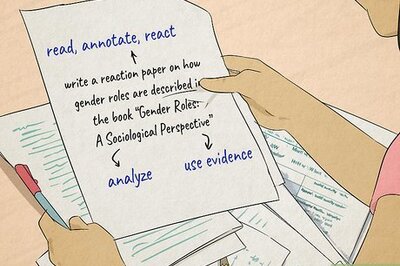
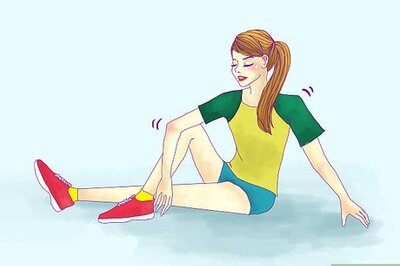






Comments
0 comment